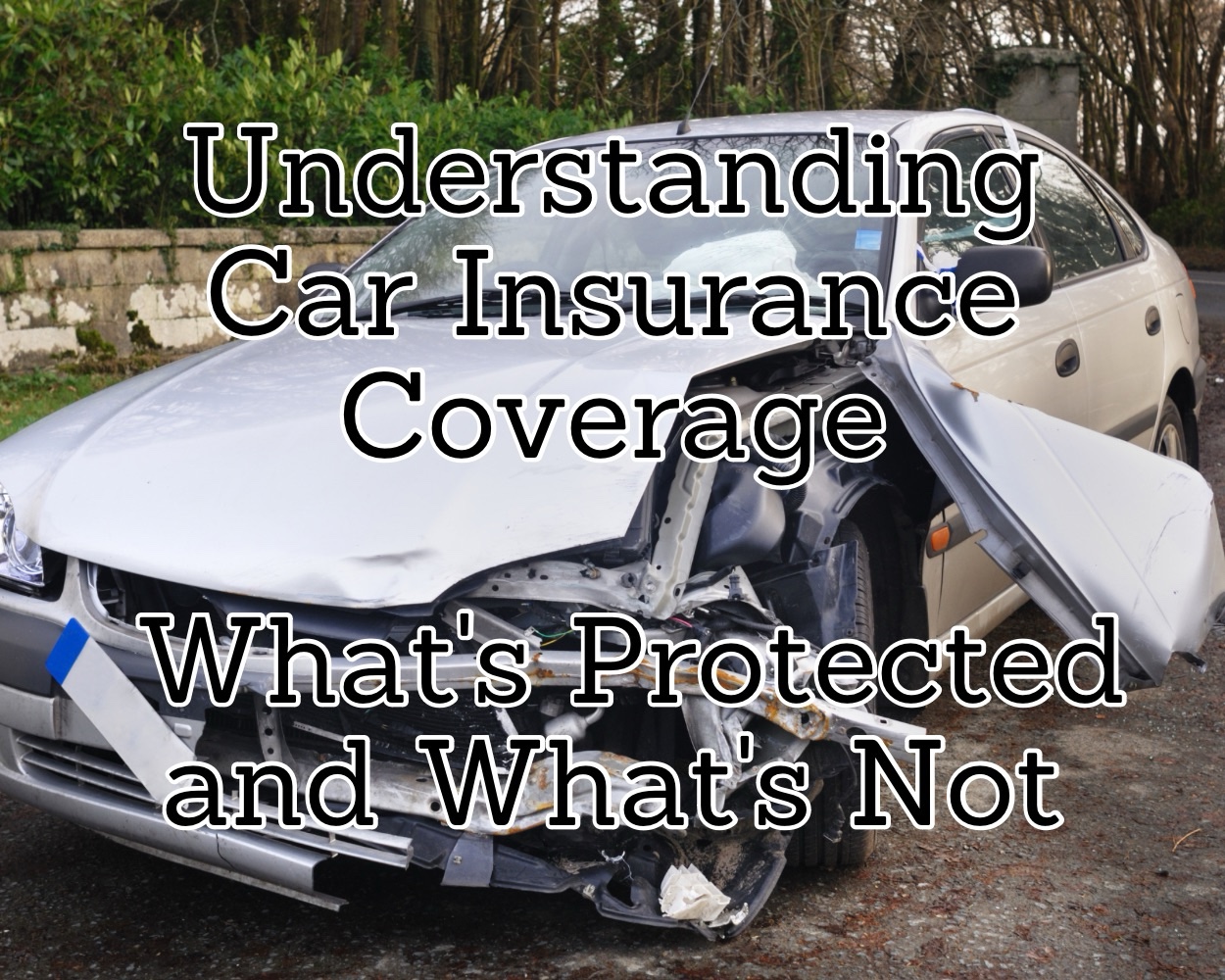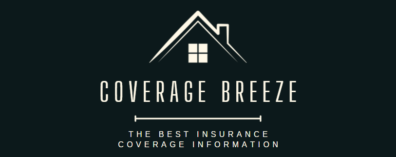Navigating the world of insurance can often feel like trying to solve a complex puzzle. With an array of terms, policies, and coverage options, understanding the ins and outs of insurance is crucial for maximizing your coverage while minimizing costs. “Insurance Secrets Revealed: Maximize Coverage, Minimize Costs” is your guide to the lesser-known tips and strategies in the insurance industry. Whether you’re a first-time policy buyer or looking to optimize existing coverage, this article aims to arm you with insider knowledge, helping you make informed decisions and uncover potential savings hidden within your insurance plans. Let’s dive into these industry secrets, breaking down the jargon and revealing ways to ensure your insurance works best for you.

Understanding Insurance Jargon
Insurance language can often seem like a foreign dialect, filled with terms and phrases that aren’t immediately clear. However, a deeper understanding of this jargon is essential in choosing the right coverage and avoiding costly mistakes. Let’s demystify some of these common terms:
Premium: This is the amount you pay for your insurance policy, typically on a monthly or annual basis. The premium is determined by various factors, including the type of coverage, your age, lifestyle, and in some cases, your credit history.
Deductible: The deductible is the amount you agree to pay out of pocket before your insurance coverage kicks in. A higher deductible usually means a lower premium, but it’s important to choose a deductible amount that you can comfortably afford in case of a claim.
Coverage Limit: This is the maximum amount your insurance company will pay out for a claim. Understanding your coverage limit is crucial, as any costs exceeding this limit will be your responsibility. Ensure your coverage limits reflect the value of what you’re insuring.
Exclusion: These are specific conditions or circumstances that are not covered by your policy. Knowing what’s excluded from your policy is as important as knowing what’s included to avoid surprises during a claim.
Rider or Endorsement: These are add-ons to your standard policy that provide additional coverage for specific items or circumstances. For instance, if you have valuable jewelry, you might consider a rider for extra protection beyond what your standard homeowner’s policy covers.
By familiarizing yourself with these terms, you can better understand your policy, ask informed questions, and make sure you’re getting the coverage you need. Remember, when in doubt, it’s always best to ask your insurance agent for clarification. Knowledge is power, especially when it comes to navigating the intricacies of insurance.
The Truth About Bundling Policies

A common piece of advice for saving on insurance is to bundle multiple policies with the same provider, such as combining home and auto insurance. While this can often lead to discounts and simplified paperwork, it’s crucial to understand both its advantages and potential drawbacks.
Advantages of Bundling:
- Cost Savings: Many insurance companies offer significant discounts when you bundle policies, which can lead to noticeable savings on your premiums.
- Convenience: Managing multiple policies through a single provider simplifies paperwork and communication. It can be easier to track your coverage and deal with claims.
- Improved Coverage Options: Sometimes, bundling policies can lead to better coverage options or additional perks that might not be available if policies were purchased separately.
Potential Drawbacks:
- Not Always the Cheapest Option: While bundling can offer discounts, it doesn’t always guarantee the lowest overall cost. It’s essential to compare the bundled price against individual policies from different providers.
- Overlooking Individual Policy Details: In the process of bundling, there’s a risk of paying less attention to the specifics of each policy. It’s important to ensure each policy within the bundle meets your individual needs.
- Complacency with Renewals: Bundled policies can create a sense of complacency, leading policyholders to auto-renew without reviewing changes in their insurance needs or market rates.
When considering bundling, it’s important to do thorough research and not just settle for the ease of having all policies in one place. One valuable step is to understand how premiums are calculated. This knowledge can empower you to make informed decisions and potentially negotiate better rates. For a comprehensive guide on how insurance premiums are calculated, check out this resource, which breaks down the factors influencing premium costs.
Discounts You Might Be Missing
Beyond the commonly known discounts for good driving or multiple policies, there are numerous other ways you could be saving on your insurance premiums, some of which often go unnoticed. Being aware of these can help you make significant savings over time.
Hidden Discounts to Explore:
- Safety Feature Discounts: Many insurance companies offer discounts for cars equipped with safety features like anti-lock brakes, airbags, and anti-theft devices. Ensure your provider is aware of all the safety features in your vehicle.
- Low Mileage Discounts: If you drive less than the average person, you might qualify for a low mileage discount. This is particularly relevant for those who work from home or use public transport frequently.
- Professional Memberships: Being a member of certain professional organizations or alumni associations can sometimes lead to discounts on your insurance policies.
- Green Vehicle Discounts: Owners of hybrid or electric vehicles often qualify for special discounts due to their vehicle’s reduced environmental impact.
- Good Student Discounts: For those with young drivers on their policy, maintaining good grades can often lead to savings, as insurers view good students as less risky.
How to Access These Discounts:
- Ask Your Agent: The simplest way to find out about available discounts is to ask your insurance agent directly. They can provide a comprehensive list of discounts that may apply to your situation.
- Review Your Policy Annually: Make it a habit to review your insurance policies annually. This not only keeps you updated on potential new discounts but also ensures your coverage aligns with your current needs.
Understanding Your Coverage:
While exploring discounts, it’s equally important to understand exactly what your insurance covers. For car insurance, knowing what’s protected and what’s not is crucial for making informed decisions about your policy. For a detailed understanding of car insurance coverage, including insights into what is typically covered and common exclusions, this guide on understanding car insurance coverage can be an invaluable resource.
In conclusion, don’t miss out on potential savings by overlooking these lesser-known discounts. Staying informed and regularly consulting with your insurance agent can lead to significant reductions in your insurance costs while ensuring you remain adequately covered.

Hidden Insurance Secrets Agents Don’t Often Share
While insurance agents are a valuable resource for navigating policy options, there are certain industry secrets they might not readily divulge. Being aware of these can empower you as a policyholder and might even save you money. Let’s uncover some of the lesser-known facets of the insurance world that could change how you view and manage your policies.
1. The Role of Credit Scores in Determining Premiums
Many people are unaware of the significant impact their credit score can have on their insurance premiums. A high credit score can lead to lower premiums, as insurers often view a strong credit history as indicative of responsible behavior and a lower risk. Conversely, a lower credit score can result in higher premiums. Understanding this relationship can motivate you to improve or maintain a good credit score for better rates.
2. The ‘First-Time Accident Forgiveness’ Myth
While many insurers advertise accident forgiveness policies, what’s often not highlighted is that this benefit is not always automatically included. It might require a higher premium or is only available to long-standing customers with a clean driving record. It’s crucial to clarify the specifics of accident forgiveness in your policy to avoid surprises.
3. The Impact of Your Car’s Model on Premiums
The make and model of your car play a significant role in determining your insurance costs. High-performance vehicles or cars with expensive parts can lead to higher premiums due to the increased risk of theft and the higher cost of repairs. Before purchasing a car, consider checking how its model could affect your insurance rates.
4. The True Cost of Making Small Claims
Making small claims can sometimes cost you more in the long run. Filing frequent claims, even minor ones, can lead to increased premiums over time. It’s often more cost-effective to handle small issues out of pocket rather than risk a hike in your premiums.
5. The Hidden Flexibility in Policies
Many policyholders don’t realize that insurance policies often have more flexibility than it appears. You can sometimes negotiate terms, such as deductibles or coverage limits, especially if you have a good track record or multiple policies with the same company. Don’t hesitate to discuss your specific needs and circumstances with your agent to tailor your policy more closely to your requirements.
6. The Advantage of Annual Payments
Paying your insurance premium annually, rather than monthly, can sometimes lead to significant savings. Many insurers offer discounts for annual payments as it guarantees them a lump sum and reduces administrative costs.
Understanding these hidden aspects of insurance can give you an edge in managing your policies and ensuring you’re getting the best value for your money. Always ask questions, conduct your own research, and don’t shy away from negotiating with your insurance provider to maximize your benefits and minimize costs.

When to Review and Adjust Your Coverage
One of the key aspects of managing your insurance effectively is understanding the importance of timely policy reviews and adjustments. Your insurance coverage isn’t something to “set and forget” – it needs to evolve as your life does. Keeping your insurance aligned with your current circumstances ensures that you are neither overpaying for unnecessary coverage nor underprepared for life’s unpredictable turns. Here are some critical times to reassess your insurance needs:
Life Events Triggering a Coverage Review
- Home Changes: Whether you’re moving, renovating, or making significant home improvements, each of these can impact your home insurance needs.
- Vehicle Updates: Buying a new car or even changing your driving habits can affect your auto insurance.
- Family Milestones: Events like marriage, having children, or even a divorce can necessitate changes in life and health insurance policies.
- Career Moves: Starting a new job or transitioning into retirement can impact various insurance requirements.
Financial Shifts
- Income Changes: Any significant increase or decrease in your income can be a reason to adjust your insurance, ensuring your coverage matches your current financial situation.
- Asset Acquisitions: Purchasing valuable items or properties means you’ll need to update your insurance to protect these new assets.
Annual Policy Reevaluation
- Dedicate time each year to review your insurance policies. This annual check-up is crucial to ensure your coverage still fits your needs.
- Always be on the lookout for new discounts or changes in your eligibility for certain benefits.
Policy Renewal Period
- Use the policy renewal phase as a chance to reassess your coverage. Don’t automatically renew without considering if your current policy still serves your best interests.
- It’s also an opportune time to compare rates and coverage with other providers.
For renters, it’s especially important to understand the ins and outs of renters insurance, which can be a safety net in various unpredictable situations. To get a comprehensive understanding of what renters insurance covers and why it’s essential, consider exploring resources like “Unpacking Renters Insurance: Your Safety Net in an Unpredictable World”.
By staying proactive about reviewing and adjusting your insurance coverage, you can maintain optimal protection tailored to your current life stage and needs. Regular reviews not only ensure that you are adequately covered but also prevent you from overspending on outdated policies.

Is it cheaper to buy insurance online or through an agent?
- Buying insurance online can sometimes be cheaper due to lower operational costs for the provider. However, purchasing through an agent can offer personalized service and tailored advice. It’s important to weigh the cost against the level of guidance and customization you prefer.
How can I ensure I’m getting the best rate for my insurance?
- The key is to shop around and compare quotes from multiple providers. Don’t hesitate to negotiate with insurers and ask about any discounts or promotions. Tools like online comparison platforms can also be helpful in finding competitive rates.
What should I do if my insurance claim is denied?
- First, review the reason for denial to ensure it aligns with your policy terms. If you believe the claim was unjustly denied, you can file an appeal with your insurance company. If necessary, seek assistance from a state insurance regulator or a legal professional.
Can I change my insurance policy midterm?
- Yes, most insurance policies allow for changes or updates at any time during the policy period. However, be aware that this could result in a change in your premium or other terms of your policy.
How often should I reassess my insurance needs?
- It’s advisable to reassess your insurance coverage annually or after any significant life changes, such as a move, a new vehicle purchase, marriage, or a change in your financial situation.
Is it beneficial to have a higher deductible?
- Opting for a higher deductible can lower your premium costs, but it also means more out-of-pocket expenses when making a claim. Assess your financial situation to determine if you can comfortably afford a higher deductible in the event of a claim.
What is the difference between replacement cost and actual cash value in home insurance?
- Replacement cost covers the cost to replace or repair your property with materials of similar kind and quality, without deducting for depreciation. Actual cash value, on the other hand, reimburses you for the property’s depreciated value. Understanding these terms is crucial for selecting the right coverage for your needs.
Understanding the ins and outs of insurance is key to maximizing your coverage while keeping costs in check. By staying informed, regularly reviewing your policies, and exploring all available options, you can ensure that your insurance is working effectively for you. Remember, knowledge is your most valuable asset in navigating the insurance landscape. Stay proactive, ask questions, and don’t hesitate to seek professional advice to keep your coverage aligned with your evolving life.
Final Tip
Always keep an eye on insurance trends and industry updates. The insurance world is dynamic, and staying abreast of changes can help you seize opportunities to optimize your coverage and save money.
As an Amazon Associate we earn from qualifying purchases through some links in our articles.




